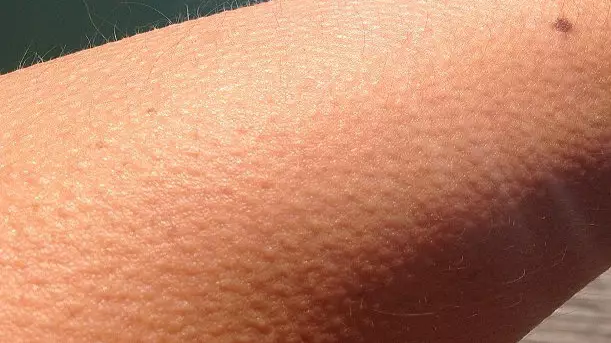
Ever had that feeling where the hairs on the back of your neck stand on end and you break out in goose bumps while listening to your favourite song? Well, according to researchers at Harvard, you might be special.
"It stemmed from a deep interest in intense, profound emotional responses, in particular those that come from music," said Matthew Sachs, a graduate student at the University of Southern California who conducted the experiments at Harvard University.

Harvard. Credit: angela n. (Creative Commons)
Advert
"I've always been fascinated by how a collection of tones changing over time has the ability to evoke these very strong sensations."
The Independent reports that Sachs put out a call for music fans who either consistently experienced euphoric sensations on hearing certain tracks, or who never felt them at all.
Over 200 people responded and filled out an online personality test. From this group Sachs selected 20 people - 10 of whom got a chill whilst listening to music and 10 of whom didn't.
The groups of volunteers had their brains and bodies monitored whilst being played an assortment of music. This enabled researchers to confirm that while all of the participants were music fans, only half of them experienced physiological responses to music.
Advert
Next, volunteers had their brains monitored using a brain-scanning technique called diffusion tensor imaging (DTI). This highlights the connections between different parts of the brain.

Credit: PA
Looking at the scans from the 'chill group' and the 'no chill group', Sachs noticed differences in how three key regions of the brain were connected.
Advert
The brains of people in the chill group had more nerve fibres running from the auditory cortex, needed for hearing, to the anterior insular cortex, involved in processing feelings, and the medial prefrontal cortex, which is thought to monitor emotions.
"The chills is a sensation we get when we're cold. It doesn't really make sense that your hair would stand on end, or that you'd get these goosebumps in response to music," said Sachs.
"We think that the connectivity between the auditory cortex and these other regions is allowing music to have that profound emotional response in these people," he added. "It's very hard to know whether or not this is learned over time, or whether these people naturally had more fibres. All we can say is there are differences that might explain the behaviour we see."
Robert Zatorre, a neuroscientist at the Montreal Neurological Institute at McGill University, said: "Some people seem particularly sensitive to music, showing not only a lot of interest and liking of music, but also displaying physiological responses to music, such as the very pleasurable 'chills'."
Advert
When Zatorre ran experiments in his own lab, he had similar findings.
"The two pieces of evidence together indicate that this interaction, between auditory and emotion systems, is the basis for musical pleasure, and that people who get more of a direct 'thrill' from music have a stronger connection," he explained.
Featured Image Credit: Jen Knoedl (Creative Commons)Topics: Study, World News, Music, US News